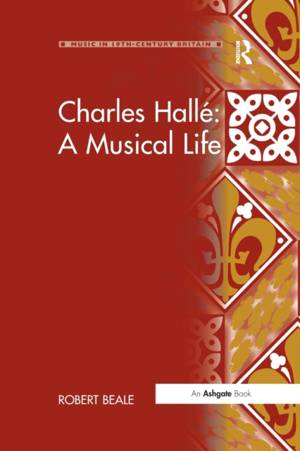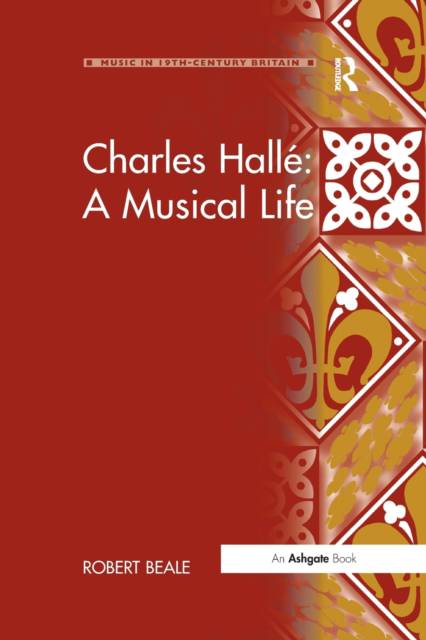
- Afhalen na 1 uur in een winkel met voorraad
- Gratis thuislevering in België vanaf € 30
- Ruim aanbod met 7 miljoen producten
- Afhalen na 1 uur in een winkel met voorraad
- Gratis thuislevering in België vanaf € 30
- Ruim aanbod met 7 miljoen producten
Zoeken
€ 112,95
+ 225 punten
Uitvoering
Omschrijving
Charles Hallé was one of the leading musicians of the nineteenth century and intimate with almost all of the great composers and performers of his time, as well as a friend of the Royal Family and known as much as a pianist and chamber musician as a conductor, in London, throughout the country and abroad, in addition to Manchester. Robert Beale presents a new perspective on Hallé's life and achievement, constructed mainly from primary sources, which serves to dispel many of the inaccuracies and omissions that have stemmed, to a great extent, from Hallé's own autobiographical account of 1896. His edited memoirs omit much of the competition and controversy, struggles and disappointments of his career in Manchester, and, indeed, hardly convey the scope of his activities elsewhere. Hallé was a key figure in the shift from contemporary to 'classical' repertory in orchestral concerts and piano performance. Not only did he found the Manchester orchestra, in 1862-3 he also gave the first known cycle of Beethoven's piano sonatas. His early annual 'recital' series in London marked a new era in the musical history of his time. The formation of the modern 'symphony orchestra' took place during the period of Hallé's professional life, and he was a pioneer in the process, in both artistic and business terms. Having adopted the role of orchestral conductor when it was itself relatively novel, he became one of the acknowledged masters of the craft over four and half decades - as well as continuing to appear as solo pianist and chamber musician, and in addition he was enormously influential as musical pedagogue and educationist.
Specificaties
Betrokkenen
- Auteur(s):
- Uitgeverij:
Inhoud
- Aantal bladzijden:
- 304
- Taal:
- Engels
- Reeks:
Eigenschappen
- Productcode (EAN):
- 9781138265523
- Verschijningsdatum:
- 15/11/2016
- Uitvoering:
- Paperback
- Formaat:
- Trade paperback (VS)
- Afmetingen:
- 156 mm x 234 mm
- Gewicht:
- 426 g

Alleen bij Standaard Boekhandel
+ 225 punten op je klantenkaart van Standaard Boekhandel
Beoordelingen
We publiceren alleen reviews die voldoen aan de voorwaarden voor reviews. Bekijk onze voorwaarden voor reviews.








